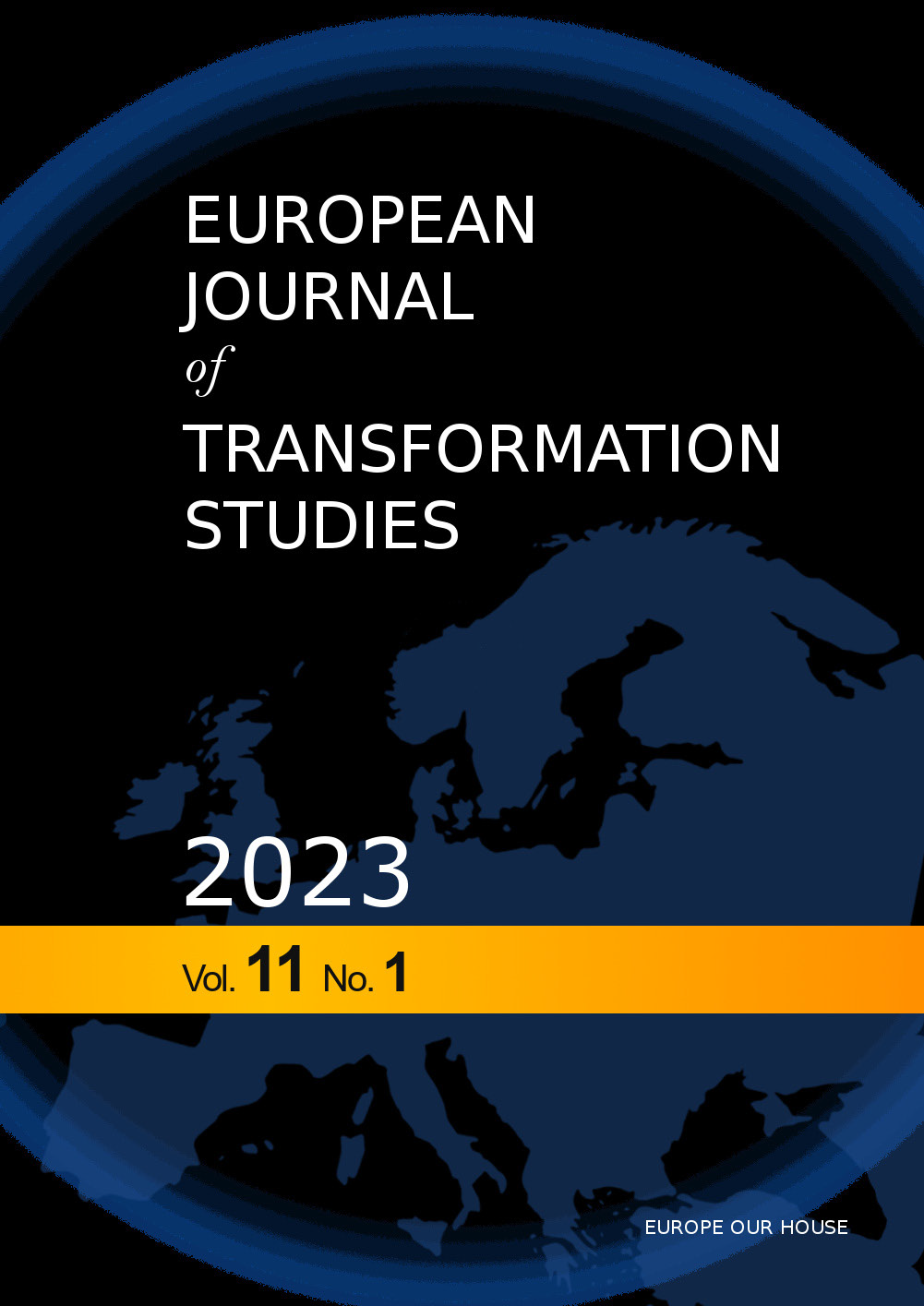Eating Animals by Jonatan Safran Foer and Its Reception by Polish Readers
Słowa kluczowe:
Book Reception, Animal Study, Sustainable DevelopmentAbstrakt
In 2013, Jonathan Safran Foer, the author of the bestseller Everything is Illuminated, once again became the center of a lively discussions in academic and non-academic circles thanks to his work Eating Animals (published by Krytyka Polityczna Publishing House, Poland). In this work Foer presented a non-literary text addressing a socially important topic, that gains new significance from the perspective of the year 2021. In this article, provide a platform for Polish readers of Eating Animals, without showing favouritism towards either vegans or non-vegans. We explore its reception, based on the definition, “the reception of a literary work by a literary audience and its functioning among different reading groups” (as defined in the Dictionary of Literary Terms p.464). Although the primary connotation triggered by this definition is sociological, reception pertains to reading, understanding, and subsequenlty interpretating a work. This attribution aligns it to literary history, disconnecting it from sociological associations. The aim of the authors is to situate Foer’s Eating Animals in the sphere of cultural and social research. Additionally, they seek to specify the definition of reception using this book as an example.
Downloads
Bibliografia
Bińczyk, E., (2018), Epoka człowieka. Retoryka i marazm antropocenu, Wydawnictwo Naukowe PWN. Braun, V. and Clarke, V., (2006), “Using thematic analysis in psychology”. Qualitative Research in Psychology, 3 (2), 77–101.
Crutzen, P.J.and Stoermer, E.F., (2000), “The Anthrpocene”. Global Change Newsletter, 41.
Crutzen, P.J., (2002), “Geology of Mankind”, Nature, 415.
Damrosch, D., (2003), What Is World Literature, Princeton University Press.
Domańska, E., (2017), „Sprawiedliwość epistemiczna w humanistyce zaangażowanej”, Teksty Drugie, 1.
Fish, S. (1976), “Interpreting the Variorum”, Critical Inquiry, no 1.
Foer, J.S., Tree of Codes.
Foer, J.S.. Wszystko jest iluminacją.
Foer, J.S., (2013), Zjadanie zwierząt, przeł. Dominika Dymińska, Wydawnictwo Krytyki Politycznej.
Grimm, G., (1996), Recepcja a interpretacja. Współczesna teoria bada literackich za granic, przeł. K. Jachimczak, red. H. Markiewicz, t. 4, cz. 1, Kraków, 255–267.
Hsiung, W., (2022), Boycott veganism. http://www.images.pythagoreancrank.com/boycott_ veganism.pdf. Dostęp 02.01.2022.
Infuture Hatalska Foresight Institute. Future of Food. 2017.
Jarmuszkiewicz, A. (2019), „Recepcja literacka – jak może być rozumiana we współczesnym literaturoznawstwie”, Pamiętnik Literacki, 1, 140–148.
Jarmuszkiewicz, A. (2014), Współczesne badania nad recepcją literacką w kontekście literatury światowej oraz pamięci kulturowej, in Mapy świata, mapy ciała. Geografia i cielesność w literaturze, red. A. Jastrzębska, Wydawnictwo Libron, 15–32.
Jauss, H.R., (1999), Estetyka recepcji i komunikacja literacka. Teoria literatury i metodologia badań literackich, przeł. B. Przybyłowska, red. D. Ulicka, Wydawnictwo Uniwersytetu Warszawskiego, 297–268.
Kapela, J., (2019), „Wykluczymy hodowlę przemysłową, ale nadal będziemy jeść mięso”, Krytyka Polityczna, 07.08.2019, https://krytykapolityczna.pl/kraj/rozmowa-o-zjadaniu-zwierzat/. Dostęp 02.01.2022.
Kubisz, M., (2019), „Veganisation of the Academy and the new Humanities: Veganism in the Context of Literary and Cultural Studies”. E(r)rgo. Theory–Literature–Culture. Discourses of veg(etari)anism, 38 (1), 11–28.
Lymbey, P., and Oakeshott, I., (2015), Farmageddon. Rzeczywisty koszt taniego mięsa, Vivante.
Mamzer, H., (2019), „Popularization of Non-meat Diets in the Context of Thorstein Veblen’s Theory Of Conspicous Consumption”, E(r)rgo. Theory–Literature–Culture. Discourses of veg(etari)anism, 38 (1), 57–78.
Paloff, B.,(2010), Czy fraza „Polish literature” oznacza literaturę polską. Polonistyka bez granic, t. 1, red. Ryszard Nycz, Władysław Miodunka, Tomasz Kunz, Universitas.
„Recepcja”, (2002), Słownik terminów literackich, red. Janusz Sławiński. Wyd. 4, Zakład Narodowy im. Ossolińskich, 464.
Singer, P., (2018), Wyzwolenie zwierząt, Wydawnictwo Marginesy. Wright, L., (2015), The Vegan Studies Project. Food, Animals and Gender in the Age of Terror, The University of Georgia Press.
Wypychowski, J.,(2014), “Rozkosz (nie)wiedzy”. Czas Kultury, 30.01.2014, https://czaskultury.pl/czytanki/rozkosz-niewiedzy/. Dostęp 02.01.2022.
Zjadanie zwierząt,(2017), Reżyseria Christopher Dillon Quinn, Handsomecharlie Films / Heretic Films.

 Uniwersyteckie Czasopisma Naukowe
Uniwersyteckie Czasopisma Naukowe



